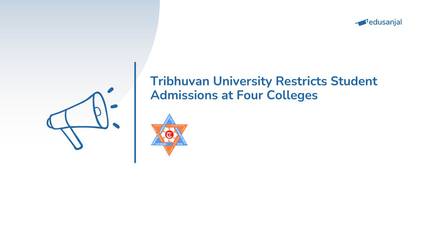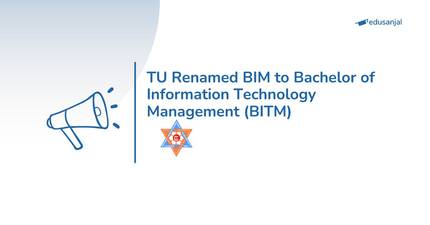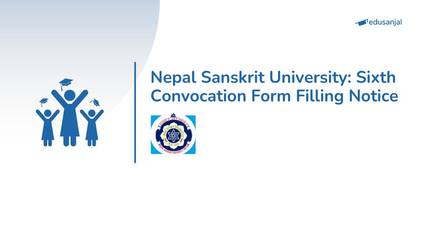Newly appointed Vice Chancellor of Tribhuvan University, Professor Dr. Keshar Jung Baral at down for an exclusive interview:
How can the Management of Tribhuvan University be Improved?
There are three reasons for the decline in Tribhuvan University. First, we haven't been able to implement educational plans effectively. Many plans remain unrealized. Second, even if we conduct exams on time, the results are not published promptly. These two major reasons have led to a loss of trust among students and parents. The third reason is that the curriculum is not updated. Our curriculum doesn't match market demands, which has led to a decrease in the attraction towards Tribhuvan University.
However, despite these challenges, 75 to 80 percent of Nepal's higher education burden still lies with Tribhuvan University. The minimum admission criterion for higher education in Nepal is 75 percent. Therefore, even after completing a four-year program in five to six years and investing in further studies, the outcome may not be timely, which becomes costly for students, parents, and the country. Consequently, more Nepali students are studying abroad.
There are other reasons as well, but notably, education is comparatively cheaper in neighboring countries, making it more attractive for Nepali students to study there.
What should students do to address this?
Even when I became the Vice Chancellor at Pokhara University, these issues persisted. Based on my experience, to keep students satisfied, Pokhara University aligned its academic calendar, announced exam results on time, updated courses, and addressed student concerns promptly. We are doing the same here.
How should Tribhuvan University manage its many students?
The problem is not the size but the management. Our goal is to improve management. The term 'vice-chancellor' doesn't signify dominance; it represents a high-level manager in higher education. Regardless of size, effective management is crucial.
How will appointments for the positions of rector, registrar, and dean be made now? What about political affiliation?
These appointments should be based on academic and administrative capabilities, not political ties. Although the previous trend was to appoint based on affiliations, for a large institution like Tribhuvan University, political coordination and balance are essential. However, even if favored by a particular party, the appointments should adhere to established procedures. Otherwise, the university's functioning will be compromised. I believe the Prime Minister shares this view. Other positions like campus chiefs and department heads should be appointed through systemic processes. Definite criteria should be set for campus chiefs.
Is there a political agenda involved?
I am not politically active. I don't engage in political speeches. You may not have seen me engage in politics. My focus is on faith and trust. Political activity is another matter. An academic in politics is different from a political academic.
How was the registrar appointed at Pokhara University?
There were political factions everywhere in Pokhara University. When making such appointments, the responsibility falls on the party. I was accountable for my actions.
Have you been Pressured by Maoists?
I was affiliated with the Maoists during my time at Pokhara University. I still accept offers only from Freehand Academics for running universities. Even the Prime Minister, who was hesitant to allow Freehand operations, has endorsed it. He hasn't paid much attention to what we discussed at Pokhara University.
Will Tribhuvan University, despite its political hold, allow Freehand operations?
Even if Tribhuvan University is excellent, one entity can't reform it alone. For the environment at TU to change, major parties need to negotiate and move forward. I'm in talks with the major parties. Until Tribhuvan University changes, the country won't progress. It's surprising. We invest 19 billion in higher education, and last year alone, one billion went abroad. This year, in six months, 6 billion have gone. If the government invests 20 billion and stops 20 percent, we can prevent students from going to India. The four-year program will extend to five or six years, increasing university costs. Initially, we will focus on improving examination systems, aligning academic calendars, and working on academic programs. Even though we can only do so much, it will lead to university improvements. This will prevent students from studying abroad.
What is the plan for Tribhuvan University in the next four years?
Rather than building, my priority is improvement. Improving the educational environment, aligning academic calendars, conducting exams on time, and releasing results promptly are relatively minor and manageable tasks. But administrative challenges are significant. Even if we manage to do this much, the belief that exams and results will be publicized on time will deter students from studying abroad.













